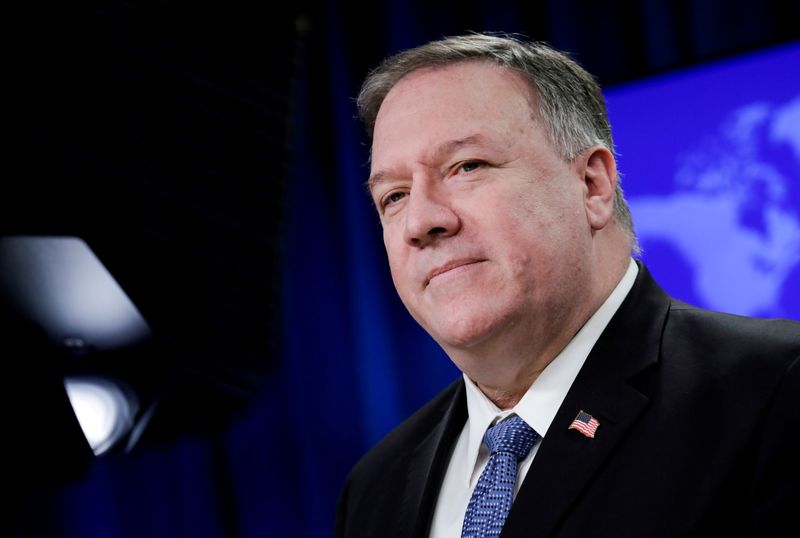WASHINGTON (Reuters) - A war of words between China and the United States showed no signs of let up on Monday, with U.S. Secretary of State Mike Pompeo in a phone call with a senior Chinese diplomat expressing "strong U.S. objections" over what Washington sees as Beijing's efforts to shift blame for the spread of the coronavirus.
Ties between the world's top two economies, already complicated due to issues including trade, intellectual property rights as well as press freedoms, have further been tested by the outbreak of coronavirus, which causes the sometimes fatal, highly contagious respiratory illness COVID-19.
"Secretary Pompeo conveyed strong U.S. objections to PRC efforts to shift blame for COVID-19 to the United States," Morgan Ortagus, State Department spokeswoman said in a statement about Pompeo's call with Yang Jiechi, director of the Office of Foreign Affairs of the Communist Party of China.
"The Secretary stressed that this is not the time to spread disinformation and outlandish rumors, but rather a time for all nations to come together to fight this common threat," Ortagus said.
The United States on Friday summoned the Chinese ambassador to protest against comments by Beijing suggesting the U.S. military might have brought the coronavirus to Wuhan. David Stillwell, the top U.S. diplomat for East Asia, delivered a very "stern representation" to China's ambassador Cui Tiankai.
On Monday China's foreign ministry struck back, saying Washington made unreasonable representations. "On the spot, China made counter-representations to the U.S. over the attacks and smears that some senior U.S. officials and congressmen made towards China," Chinese foreign ministry spokesman Geng Shuang told reporters during a daily briefing.
